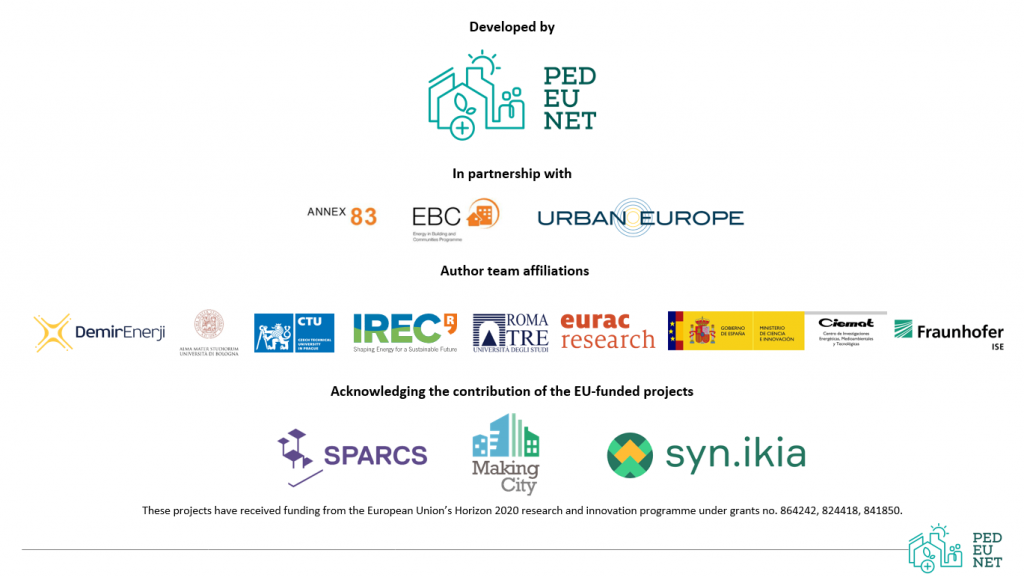| D1P001: Name of the project | |
| D1P001: Name of the project | ENERGY4ALL |
| D1P002: Project assigned code | |
| D1P002: Project assigned code | F-DUT-2022-0114 |
| D1P003: Start date | |
| D1P003: Start date | 01/24 |
| D1P004: End date | |
| D1P004: End date | 12/26 |
| D1P005: Ongoing project | |
| D1P005: Ongoing project | Yes |
| D1P006: Funding programme/financing model | |
| FP7/H2020/HEU/DUT | no |
| Interreg | no |
| National funding | yes |
| National funding | Part of the Driving urban transition (DUT) which sees direct funds from National funding agencies from the partners involved in the project. In ENERGY4ALL we have FFG (Austria), MIUR (Italy), RCN (Norway), and NKFIH (Hungary). |
| Public-Private Partnership - please specify | no |
| Other | no |
| D1P007: Estimated project costs (Mill. €) | |
| D1P007: Estimated project costs (Mill. €) | 1.752 |
| D1P008: Description of project objectives/concepts | |
| D1P008: Description of project objectives/concepts | ENERGY4ALL aims at developing energy configurations as a common pool resource, testing the community dimension in the design and implementation of emergent Positive Energy Districts (PED) and Energy Communities (EC). The project explores an inclusive governance model through supportive toolboxes for the design and implementation of participatory energy governance and replicable pathways for PEDs/ECs. The project operates with an open definition of EC, including both as a set of households producing and consuming energy, as well as users of a common public resource to increase energy efficiency. ENERGY4ALL conceptualises ECs as featuring three constitutive elements in mutual relationship: resource, community and governance. These elements are explored in different cases within the four pilot cases, Stavanger (Norway), Styria (Austria), Budapest (Hungary) and Rome (Italy), with coverage of various characteristics including urban and industrial sites, territorial scales from household to district, and multi-stakeholder involvement of public authorities, private enterprises, research institutions and local citizen groups. ENERGY4ALL develops policy briefs for PEDs/ECs under regulatory and institutional lenses (WP1) in order to develop a common methodology and roadmap throughout the four pilot cases (WP2), which are then co-designed in close connection with local stakeholders (WP3-6), with a fundamental role in communication (WP7). |
| D1P009: Description of project upscaling strategies/potential | |
| D1P009: Description of project upscaling strategies/potential | The project will support the creation and provide, both pilot cities but also other interested stakeholders, transferability toolboxes and training modules that will support both the implementation of the inclusive models of PEDs/ECs for the specific contexts and objectives of the pilots and for mainstream and upscale PEDs/ECs in a sustainable manner. In this case the pilot cities will function as lighthouse cities and will work as living labs in which they will study their social, economic and environmental contexts and experiment the establishment and implementation of PEDs/ECs. This knowledge will then be part of the toolboxes and training modules for knowledge sharing. |
| D1P010: Number of PED case studies in the project | |
| D1P010: Number of PED case studies in the project | 6 |
| D1P011: Case Study | |
| D1P011: Case Study | |
| D1P012: Description of project expected impact | |
| D1P012: Description of project expected impact |
|
| D1P013: Standardization efforts | |
| D1P013: Standardization efforts | At this stage of the project we have not adopted any list of indicators, targets and thresholds. However, we list here below the objectives that we have set and of we aim to measure them: 1) Raising awareness of the stakeholders and beneficiaries of the project: ● N. of events, website outreach, social media followers. 2) Increasing the engagement of the regional and local authorities in addressing issues of mitigation of CO2 emission and inequalities: ● N. advocacy events, people involved in advocacy events. 3) Exchanging knowledge and experience with other projects and groups working on similar issues: ● N. project advised and exchanged with. 4) Dissemination of the methodologies applied by the project: ● N.scientific outputs. |
| D1P014: Sources | |
| D1P014: Sources | |
| D1P015: Can you specify a suitable contact person regarding the load-management approach within your PED project? | |
| Name | Daniela Patti |
| daniela.patti@eutropian.org | |
| D1P016: Would you be willing to share data from your PED project for research purposes? | |
| D1P016: Would you be willing to share data from your PED project for research purposes? | Yes |

Authors (framework concept)
Beril Alpagut (Demir Energy); Giulia Turci (University of Bologna); Michal Kuzmic (Czech Technical University in Prague); Paolo Civiero (Università Roma Tre); Serena Pagliulia (University of Bologna); Oscar Seco (CIEMAT); Silvia Soutullo (CIEMAT); Daniele Vettorato (EURAC Research, IEA Annex 83); Bailador Ferreras M. Almudena (CIEMAT); Vicky Albert-Seifried (FHG ISE)
Contributors (to the content)
Laura Aelenei (LNEG), Nienke Maas (TNO), Savis Gohari (OsloMet), Andras Reith (ABUD), Ghazal Etminan (AIT), Maria-Beatrice Andreucci (Universita Sapienza), Francesco Reda (VTT, IEA Annex 83), Mari Hukkalainen (VTT), Judith-Borsboom (Locality), Gilda Massa (ENEA), Jelena Ziemele (University of Latvia), Nikola Pokorny (CVUT), Sergio Diaz de Garayo Balsategui (CENER, IEA Annex 83), Matthias Haase (ZHAW, IEA Annex 83), Christoph Gollner (FFG, JPI UE), Silvia Bossi (ENEA, JPI UE), Christian Winzer (Zurich University of Applied Science), George Martinopoulos (Centre for Research and Technology Hellas), Maria Nuria Sánchez (CIEMAT), Angelina Tomova (Energy Agency of Plovdiv), Oya Tabanoglu (Demir Enerji), Jelena Brajković (University of Belgrade), Juveria Shah (Dalarna University), Michela Pirro (ENEA), Francesca Sabatini (University of Bologna)
Implemented by
Boutik.pt: Filipe Martins, Jamal Khan
Marek Suchánek (Czech Technical University in Prague)